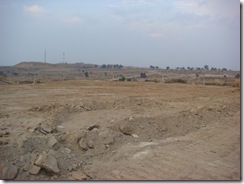 There are certain factors which need to be considered when buying land. In this article, we discuss the basics of buying land for profit.
There are certain factors which need to be considered when buying land. In this article, we discuss the basics of buying land for profit.
The first thing to consider when buying land is its location. There is a great difference in the price of land depending on whether it is located in an urban area or the countryside. It may often be difficult to obtain planning permission to build houses on land in the country, especially if the land is green belt. Thus, it may be possible to buy land cheaper in the country. This could primarily be due to supply and demand – fewer potential buyers available. A thorough appraisal of any land, especially its location should therefore be conducted prior to parting with any cash.
The surrounding environment must also be taken into consideration. Smell and ambient sounds play important factors in determining the feasibility of the land for further development. It is not expected that people will trade odors of fumes in urban areas for the agricultural smell of pig dens!
It is also important to identify any zoning issues which could affect the land you are considering to purchase. Certain greenbelt land cannot be zoned and sold as development land. As an investor, you need to be aware of this and ensure you do not buy land that is protected under this scheme.
The geodetic structure should also be identified. This is also necessary to minimize the damage that might result from hazards affecting more particularly the soil. Soil component structure will reveal important information that will determine the feasibility of further development.
Access to the land by way of existing routes and roads is of paramount consideration. Land with good access routes is more likely to achieve planning permission for new build properties than land that is in the middle of nowhere.
Services such as water supply and electricity are also important points that need to be considered when purchasing land. The state of these services must be studied in order to determine if development of the land is likely to be possible.
When buying land, you can either purchase plots with planning permission approved or use a long term approach of buying land with no planning permission in the hope of obtaining it further down the line. Obviously the latter option will provide greater returns associated with the enhanced risk levels.
To reduce your risk, it may be advisable to purchase an option to buy that land at a prescribed price for say within 2 years. The 2 years should be enough for you to determine whether or not you are likely to obtain planning permission. If planning permission is likely to be granted, you purchase the land. Otherwise, you don’t go ahead with the purchase. This way, you only set to lose the option fee and not the entire purchase price of that land.
For more tips and property strategies, claim your free course here:







